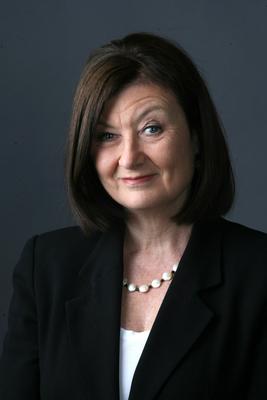Journalist use of social media in court an issue
 Gold Walkley winning reporter Kate McClymont has raised concerns about the potential impact that reporters using social media platforms, like Twitter, are having on the conduct of court cases.
Gold Walkley winning reporter Kate McClymont has raised concerns about the potential impact that reporters using social media platforms, like Twitter, are having on the conduct of court cases.
In a video interview with Encore, The Sydney Morning Herald investigative journalist said that while she had recently been tweeting from the Independent Commission Against Corruption hearings into the Obeid family, she was concerned about the wider impact social media reporting could be having on the administration of justice.
“I’ve only tweeted from ICAC because there is no jury involved,” McClymont told Encore.
“But I think this is going to be an interesting legal question. As reporters, we are meant to be representing the man in the street. So what we hear and see in a court case, we are able to tell our readers. However, (there are problems with) the idea of tweeting every few moments.”
In particular, McClymont has concerns with the potential for witness testimony to be impacted by what is being reported on social media.
“There are witness who are sitting outside who aren’t meant to know what evidence is being given. Is this going to have an impact on the course of justice by tweeting the minutiae of what is happening in within the courtroom? It’s an interesting consideration.”
Bond University law professor Patrick Keyzer says the issue is of legal significance and that is yet to be fully addressed by the courts.
Professor Keyzer recently edited an academic report on juries and social media for the Victorian Department of Justice and says: “Technology is here to stay and courts have to live with it. The question then becomes how best should the courts managed that problem.”
“The principles of contempt of court and sub judice are as relevant today as they were 50 or 100 years ago but the difficulty today is that social media has rapidly expanded the potential of information to be spread. That can have a negative impact on the administration of justice,” he adds.
Professor Keyzer is especially concerned that both jurors and citizen journalists need clearer instruction on the use of social media in relation to court cases.
“Traditionally journalists with the mainstream media were people who were trained to be conscious of the legal principles. But these days, with the rise of the citizen journalist, you have the prospect of more and more reporters, some or many of whom won’t have had the training and therefore the knowledge that is important to the maintenance of justice.”
Nic Christensen
 This story first appeared in the weekly edition of Encore available for iPad and Android tablets. Visit encore.com.au for a preview of the app or click below to download.
This story first appeared in the weekly edition of Encore available for iPad and Android tablets. Visit encore.com.au for a preview of the app or click below to download.


I can help but feel that Kate is just being totally righteous. Journalists don’t ‘represent’ anyone in any street? I think she had a word confusion moment. Maybe she meant ‘service’ the man in the street. Court reporting on cases should only be done by the courts via the transcript until a case is finalised. Im sure that Kate knows already that what anyone hears or sees in court is never everything submitted in evidence. Or even what happened. Truth and facts are very different. Cartoons are the future. Dig it.